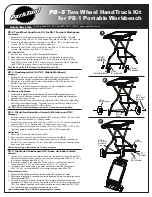
INSTALLATION:
Ensure all AC power is switched off.
Loosen the screw on the case bottom, open the wiring hole and
pass the power/load wire and load through the case bottom.
Fix the case bottom to the desired location with included screws.
Connect the power and load wires as per the connection-wire
diagram.
Secure the sensor to the bottom case, tightly twisting the screw,
then power on and test.
CONNECTION-WIRE DIAGRAM
:
TESTING THE INSTALLATION:
Turn the LUX knob clockwise to
maximum setting (sun). Turn the
SENS knob clockwise to maximum
setting (+).
Turn the TIME knob anti-clockwise
to the minimum setting (10s).
When you switch on the power, the
light will turn on immediately. 10 seconds later the light should turn off automatically. If
motion is detected after this, the light should turn on. This indicates normal operation.
If the motion sensor detects movement while the light is still on, it will reset the on-timer
delay, causing the light to remain on.
Turn LUX knob anti-clockwise to the minimum setting (3). If ambient light levels are
less than 3 lux (darkness), the sensor switch will go into motion sensing mode.
Note: when testing in daylight, please turn LUX knob to (SUN) position to allow the sensor
to work.
INSTALLATION NOTES:
This product must be installed & maintained only by a qualified, licensed electrician.
Install the product in a secure location that does not sway or vibrate.
Objects placed in front of the sensor may affect the sensing range.
Avoid installation near metal or glass surfaces as this will affect reception range.
For your safety, do not open case after installation (qualified electricians only).
Install a 6A switch or circuit breaker in-line with the switched load to prevent sensor
damage due to overloading.
TROUBLESHOOTING:
The connected load does not turn on:
a. Check the input power to the sensor. Ensure supplied voltage is between
220~240VAC.
b. Check to see if the indicator light is turned on after triggering
– if it is, check
the wiring to the load.
c. If the indicator light does not turn on after triggering, try increasing the value of
the LUX daylight sensor settings.
Poor motion detection sensitivity:
a. Ensure there are no objects between the sensor and the desired sensing
location as this could reduce the range.
b. Ensure that there are no other devices using the 5.8GHz band in close
proximity to the detector (eg: Wireless LAN, CCTV transmission equipment, etc.)
c. Ensure the installation height is 1.5-3.5m.
The sensor does not turn off the load:
a. Check the TIME knob to ensure that the correct on-time delay has been selected.
b. Ensure that there are no other devices using the 5.8Ghz band in close proximity to
the detector (e.g. Wireless LAN, CCTV transmission equipment, etc).
c. Ensure that the power drawn by the load is less than 1200W for a resistive load
and 300W for an inductive load.




















